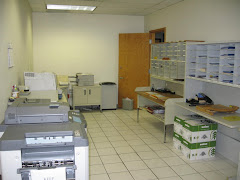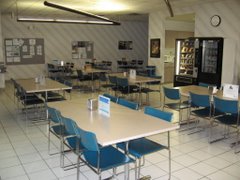 An associate submitted a SPIN idea to stock a second sku of copy paper at our Tucson cross dock. We've been stocking one item for years, our best seller. But a branding shift has happened in recent years and that best seller has been losing sales to a new copy paper item, which is shipped via the nightly trailer.
An associate submitted a SPIN idea to stock a second sku of copy paper at our Tucson cross dock. We've been stocking one item for years, our best seller. But a branding shift has happened in recent years and that best seller has been losing sales to a new copy paper item, which is shipped via the nightly trailer.An adjustment was made to reduce the amount of product from the original sku to be stocked in Tucson, and replace that product with the new paper sku. Although we stock no more paper on the floor in Tucson, we now have the two top skus represented. Pallet volume on the trailer has declined and productivity in the warehouse has increased. It is easier to send the labels than it is to select the pallet of paper and load them into the truck. The Tucson team also receives a time-saving benefit because they no longer need to unload the paper from the trailer. It is already on their floor.
This asociate idea is expected to save $3,600 annually in transportation and loading expenses. Congratulations to the team for an excellent idea and successful implementation!






